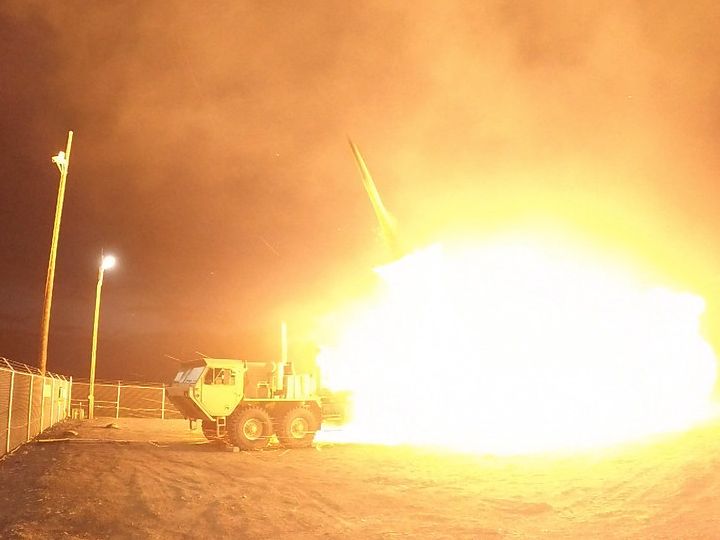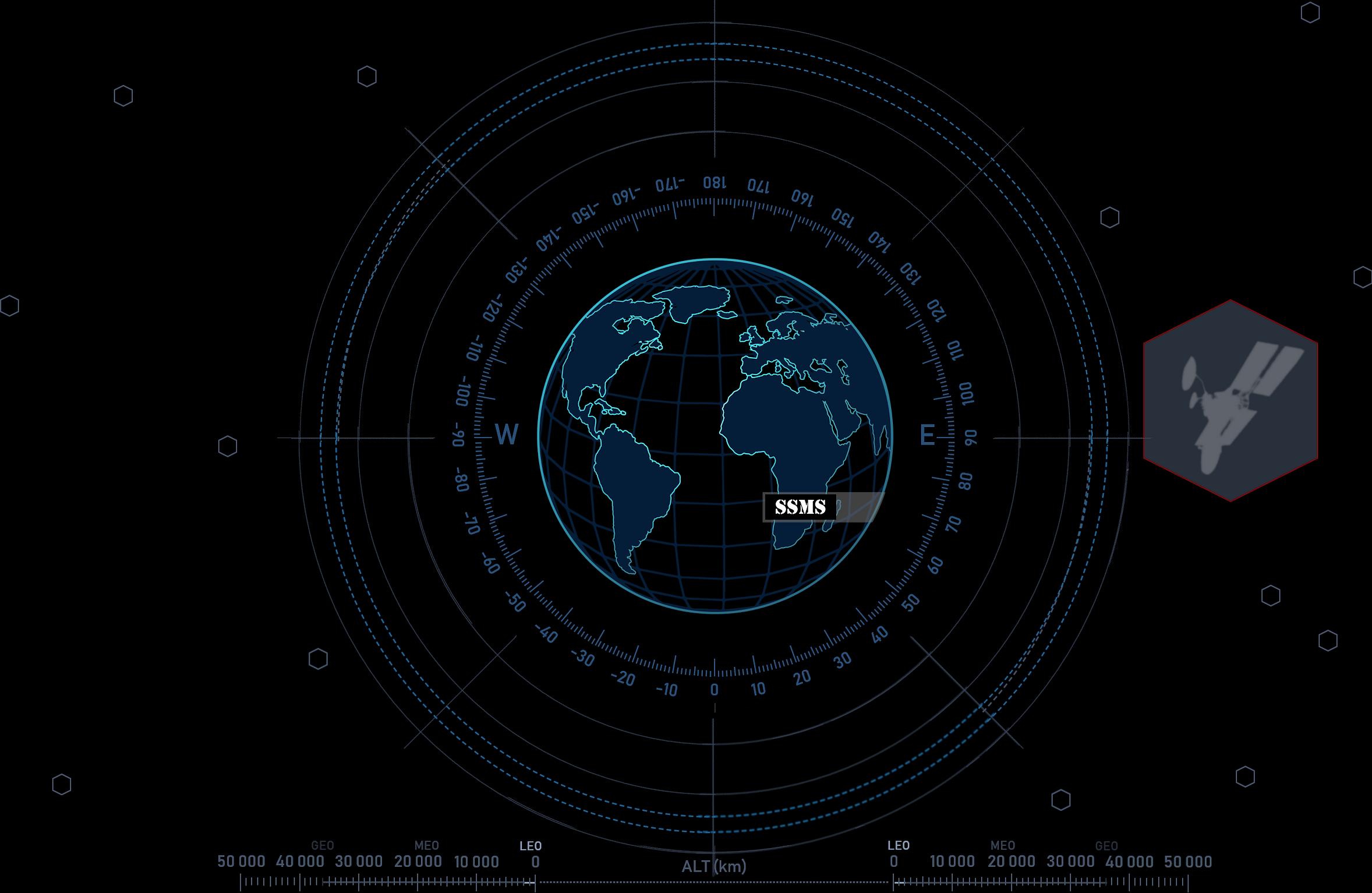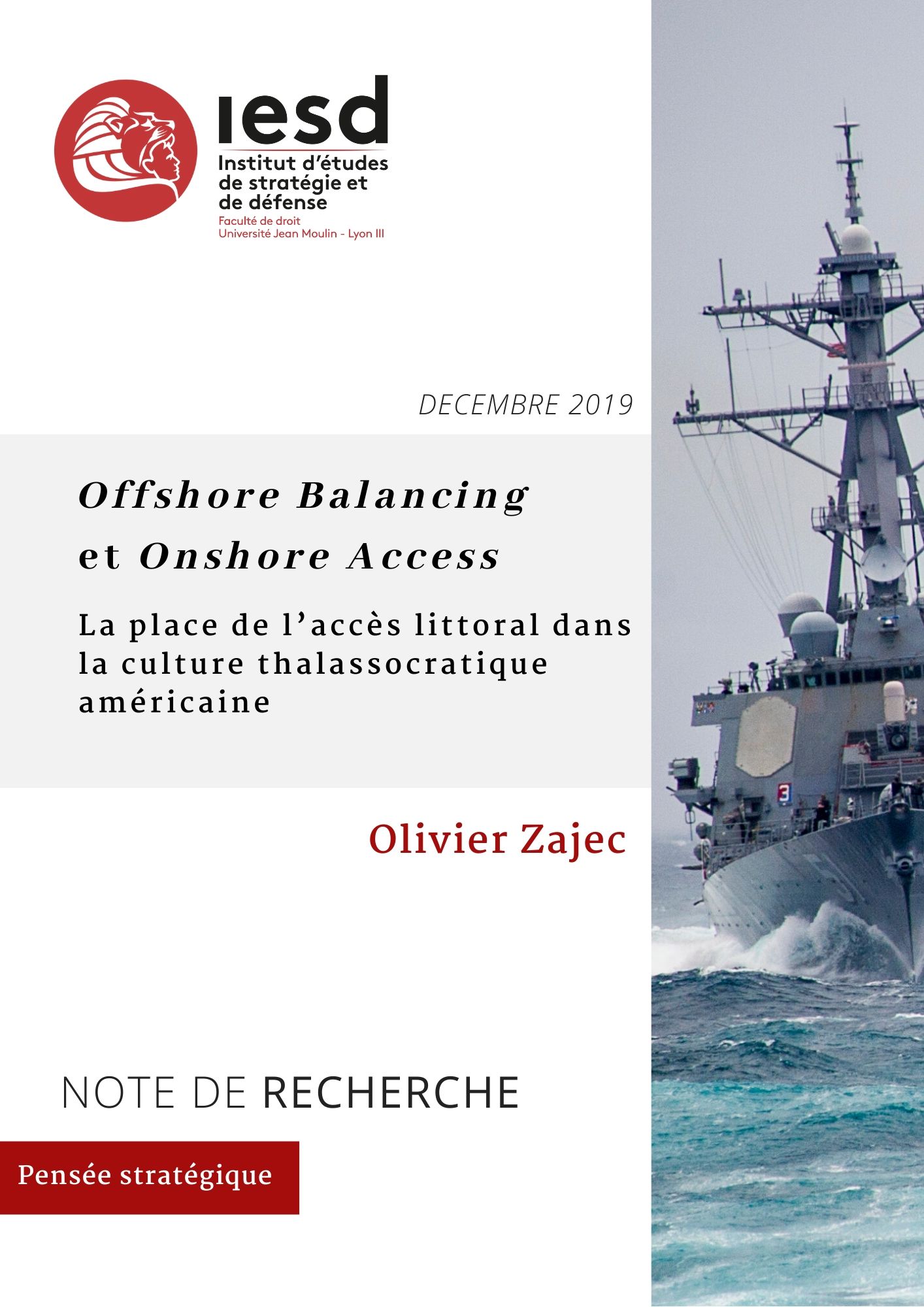
Offshore Balancing and Onshore Access, the place of coastal access in the American thalassocratic culture
Abstract
Dans la culture stratégique américaine, le balancement entre d’une part la domination du grand large et d’autre part la présence sur les rivages lointains constitue depuis ses origines le socle dual de la réflexion navale. L’ambivalence présente au cœur même de l’œuvre de Mahan, stratégiste maritime et naval le plus célèbre de l’histoire américaine en porte, entre autres, un témoignage significatif. Pour les États-Unis, l’Offshore balancing, objectif politique global dérivant de ce constat, reste donc inséparable d’un Onshore access sur les rivages de tous les continents. Mais la montée en puissance des stratégies de déni d’accès débouche sur le défi d’accès : opérer sur les littoraux de l’Île mondiale n’est plus une simple question logistique et diplomatique, mais bien une problématique opérative et stratégique de plus en plus incertaine.
About the Author
Antony Dabila is associate professor at University Toulouse-I-Capitole and researcher at the Institute for Defense and Strategic Studies. His work is focusing on the transformations of the human environment formed by the combatants and how strategic thinking adapts to its evolution. He teaches strategy and defense policies at the Sciences Po Lyon and University Lyon-III-Jean Moulin
The balance between domination of the open ocean on the one hand and presence on distant shores on the other has been the dual basis of American naval thinking since its origins.
Strategic Thinking

High strategic capabilities and defensive military assistance in the Ukraine war: the double threshold dilemma
One of the major elements of the Russian-Ukrainian confrontation is of course its potential nuclear nature. This dimension encourages the Biden administration not to let the war in Ukraine degenerate into a major conflict that would directly oppose Americans and Russians. This limit makes the problem of Western co-belligerence a key element in the political-military equation of the conflict. Taking this context into account, this note relates the tactical-operational “threshold” related to this arms supply to a second threshold of a politico-strategic nature, which in turn is influenced by the phenomenon of the interconnection of high strategic capabilities, and which opens up the delicate concept of multi-domain deterrence.
𝐉𝐚𝐧𝐮𝐚𝐫𝐲 𝟐𝟎𝟐𝟑

Exploration note of the space wargame realized on 19/11/2021
Designed in two phases, crisis management and Red Team exploitation of the results of the crisis, this Wargame allowed an in-depth reflection of the players, leading to the most negative possible result of a generalized catastrophe of the Kessler syndrome type. The causes of this development are to be found in a continuous escalation due to the export of traditional geopolitical oppositions to space competition, in particular between great powers, pushing the players to act in a logic of confrontation rather than cooperation. The relevance of decisions, as well as their rationality, have demonstrated a fundamental political dimension of management of Space, in particular in case of crisis, with the pursuit of interests and the will to power as the main engine of actions.
À lire également

The silent masters of the oceans: the strategic and non-proliferation implications of nuclear-powered submarines in Australia and Brazil
At the International Atomic Energy Agency (IAEA) General Conference in 2022, Director General Rafael Grossi emphasizes that “the world of nuclear proliferation and safeguards is changing,” and that this change creates important technical and political challenges. The announcement of the AUKUS agreement and the progress of Brazil’s nuclear-powered submarine program reflect regional geopolitical realignments. Internationally, the IAEA safeguards system is challenged by these developments insofar as they entail risks of nuclear proliferation. How does the acquisition of nuclear-powered submarines impact both the regional and international strategic balance and nuclear non-proliferation norms? The purpose of this research note is to analyze the geopolitical motivations of nuclear-powered submarine programs in Australia and Brazil and their implications for nonproliferation instruments.
𝐉𝐚𝐧𝐮𝐚𝐫𝐲 𝟐𝟎𝟐𝟑

High strategic capabilities and defensive military assistance in the Ukraine war: the double threshold dilemma
One of the major elements of the Russian-Ukrainian confrontation is of course its potential nuclear nature. This dimension encourages the Biden administration not to let the war in Ukraine degenerate into a major conflict that would directly oppose Americans and Russians. This limit makes the problem of Western co-belligerence a key element in the political-military equation of the conflict. Taking this context into account, this note relates the tactical-operational “threshold” related to this arms supply to a second threshold of a politico-strategic nature, which in turn is influenced by the phenomenon of the interconnection of high strategic capabilities, and which opens up the delicate concept of multi-domain deterrence.
𝐉𝐚𝐧𝐮𝐚𝐫𝐲 𝟐𝟎𝟐𝟑
The Nuclear Sea-Launched Cruise Missile (SLCM-N): Implication for U.S. nuclear strategy and arms control
In May 2021, soon after taking office, the Biden administration confirmed the decision to fund the NucleaSea-launched Cruise Missile (SLCM-N), one of the most controversial programs of Donald Trump’s term. The decision was received with surprise by some analysts: Joseph Biden had argued against this new weapon during his campaign. Finally, after considerable discussion within the government and the armed forces, the Democratic administration appears to have reconsidered its decision and canceled the SLCM-N program.



